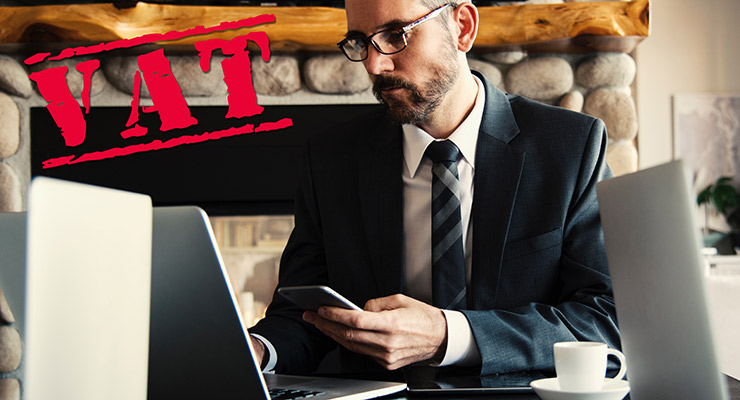John M Shanahan & Co.
linking practice to business



VAT
Value Added Tax (VAT)

VAT is a tax on consumer spending. It is collected by VAT-registered traders on their supplies of goods and services effected within the State, for consideration, to their customers.
Generally, each such trader in the chain of supply from manufacturer through to retailer charges VAT on his or her sales and is entitled to deduct from this amount the VAT paid on his or her purchases.
Current Rates of VAT
The current VAT rates are:-
(a) 0% (the zero rate).
(b) 4.8% (the agricultural rate). This applies to supplies of live cattle, deer, goats, greyhounds, horses, pigs and sheep.
(c) 13.5% (the low rate). This is reduced to 9% for certain goods and services.
(d) 23% (the standard rate). This rate applies to goods and services that are not exempt, or specifically liable at 0%, 5.5%, or 13.5%.
A rate of 5.5% (the farmer’s flat-rate addition) applies to supplies of agricultural produce by flat-rate (i.e., unregistered) farmers.
VAT Returns
A VAT-registered person normally accounts for VAT on a two-monthly basis (January/February, March/April etc.). The return is made online on the Revenue ROS system together with a payment for any VAT due. The due date for the submission of the ROS VAT return is the 23rd of the month following the end of the taxable period. For example, a return for the VAT period May/June is due by 23rd July.
A Taxable Person
A trader is a taxable person and must register for VAT if in any continuous 12 month period if:
(a) his turnover from the supply of taxable goods exceeds, or is likely to exceed €75,000,
(b) his turnover from the supply of taxable services exceeds, or is likely to exceed €37,500,
(c) the value of his Intra Community Acquisitions exceeds, or is likely to exceed €41,000,
(d) he disposes of developed property,
(e) being a distance seller selling into Ireland, his turnover from the supply of goods exceeds, or is likely to exceed €35,000 in a calendar year.
A farmer or sea-fisherman is not obliged to register but may elect to do so.
Monies Received basis
Under the normal Invoice Basis for accounting, a trader is liable to account for VAT when an invoice is issued to a customer. Under the Cash Basis (also called the Receipts or Moneys Received Basis) of accounting, a trader is liable to account for VAT when payment is actually received.
A trader must fulfill one of two criteria to be on the Cash Basis. Either
1. Annual turnover does not exceed €2,000,000 or
2. Supplies are almost exclusively (at least 90%) made to customers who are not registered for VAT, or are not entitled to claim a full deduction of VAT.
In practice, the Cash Basis of accounting is mainly used by shops, restaurants, public houses and similar businesses, and by any other person making supplies of goods or services directly to the public.
Package Rule
A supply consisting of a combination of goods and/or services chargeable at different VAT rates for a single price is chargeable at the highest rate applicable to any of the items in the package.
Two Thirds Rule
If a combination of goods and services is supplied for a single price, provided the value of goods exceeds two-thirds of the total price for the job, the entire transaction is treated as a supply of goods (not a service).
Zero rate Scheme for Qualifying Businesses
This scheme provides that an accountable person who derives not less than 75% of their annual turnover from supplies of goods out of the State, can apply to have most goods and services supplied to them and intra-Community acquisitions and imports made by them zero-rated. The zero-rating does not apply to supplies of goods or services which would not in the normal course be deductible.
Contact Us - Contact us for a free initial consultation to find out how we can help.


